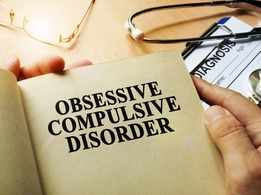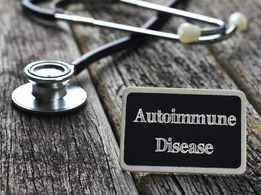01/9Watch out for these long COVID symptoms
)

While a COVID recovery happens in 14-20 days, for many patients, novel coronavirus symptoms can turn into months' long battle and have long-term consequences.
Long COVID, or post COVID, as it is medically termed is a syndrome which can affect 1 in 5 COVID recovered patients. For many, even after overcoming the infection, signs and symptoms can linger for a long, long time, and in some cases coming forward, it could be as long as nine months.
02/9COVID can have lasting consequences on your health
)

Even though early research points out at COVID-19's direct manifestations as a respiratory virus, we now know how confusing, long-lasting, indirect and extensive the damage can be. While some symptoms could be resultant of the viral debris, there are other symptoms that have downright befuddled experts and the patients who thought they had made successful recoveries.
We tell you about a few of them, and the warning signs to watch out for:
03/9Menstrual changes
)

COVID-19 may impact women a little less severely than men but there is an impactful danger for their lifelong well-being. Now, some women long-haulers have reported suffering from elongated PMS, hormonal changes and a general worsening of long-haul symptoms before a period starts.
Some of the other associated long COVID symptoms, such as brain fog, fatigue, anxiety are also associated with menopause and low hormone levels. Many even worry that a lack of attention could fuel infertility and hormonal issues in women of reproductive age.
04/9Erectile dysfunction
)

For men too, a COVID infection could imply sexual and reproductive changes. New reports have suggested that the virus could indirectly impact the testes, leading to a declined sex drive, sexual issues, erectile dysfunction, infertility and deficiencies.
A possible reason for this could be a high concentration of ACE2 receptors near the testes, which are also a rich source of blood vessels, and hence, can result in viral damage and lower testosterone levels.
Interestingly, worse outcomes and COVID severity have also been linked to low testosterone levels in men.
05/9Cognitive decline
)

Almost all patients who suffer from COVID-19, whether mild or moderate report a common confusing symptom- brain fog, cognitive decline and express an inability to do common tasks. For many, even simple everyday tasks could turn into a struggle or require help.
While the exact cause of this is not known yet, COVID-19 could age the brain by upto 10 years, induce nervous and cognitive problems and increase the chances of mental illnesses. Problems like stress, anxiety, delirium, confusion, irritability, insomnia and PTSD can be commonly seen. Doctors are now recommending that COVID patients be screened for cognitive changes and tests during their recovery phase, to aid recovery.
06/9Blood clotting and cardiovascular complications
)

Yet another baffling post COVID symptom is blood clotting and inflammation. Even the young and healthy are thronging to hospitals, reporting cardiac complications and surgeries to treat blood clots, some of them serious in nature.
Deep vein thrombosis, tissue damage, reduced blood flow in the body, stroke and heart attack risks are also some of the side-effects caused by the SARS-COV-2's damage to the heart, lungs and other vital organs.
While blood clots need early attention, some studies suggest that a possible reason for this could be the body's autoimmune response, which forces it to attack its own system and often causes threatening reactions like the ones listed above. What's more puzzling is that these reactions could strike anyone, regardless of age, gender or recovery.
07/9Chronic fatigue and immune challenges
)

A person's immunity determines his/her ability to fight off the viral load. But for some, even after the virus is long gone, it can unleash bad repercussions for the immune system, lead to deficiencies and make them experience chronic fatigue, exhaustion and energy loss.
Post-COVID fatigue has also been characterized by lethargy, muscle ache, pain, dullness, breathlessness, severe weakness and exhaustion.
While there are other post COVID symptoms which raise red flags, fatigue which take the most time to recover and make a person experience delays in resuming back to normal life.
08/9Long haul complications in kids
)

It's not just adults who end up becoming long haulers. Kids as young as 6 or 7 could be affected too, reports now suggest.
While COVID symptoms in kids could be different, and impact them less severely, COVID could still carry long-term inflammatory damages for the young ones who are still growing up. Parents are now reporting kids suffering from chronic symptoms like gastrointestinal issues, lingering cough, breathlessness, muscle pain, dizziness and cognitive blunting, which may even require long-term care and therapy.
09/9When is it the right time to seek help?
)

A normal COVID recovery could take anywhere from two weeks to a month or two, which is also the time patients need to practice the most caution and care.
However, if people continue to exhibit symptoms weeks on after battling the infection, experience breathlessness, saturation, cardiac pain, or general degradation of their health- it might be a sign of suffering from post COVID-syndrome. Do remember that just like all COVID cases, no two people will have the same long COVID symptoms.
A lot of cities have also opened up Post COVID care clinics, specially dedicated to treating long-haul symptoms. Watch out for your symptoms and seek help in time, which will help you resume normalcy in the earliest timeframe.









































































![[New!] Level 4 - 30 minute tempo fat-burning!
[New!] Level 4 - 30 minute tempo fat-burning!](https://static.toiimg.com/thumb/79327298.cms?width=147&height=86)












closecomments
SIGN IN WITH
FacebookGoogleEmail